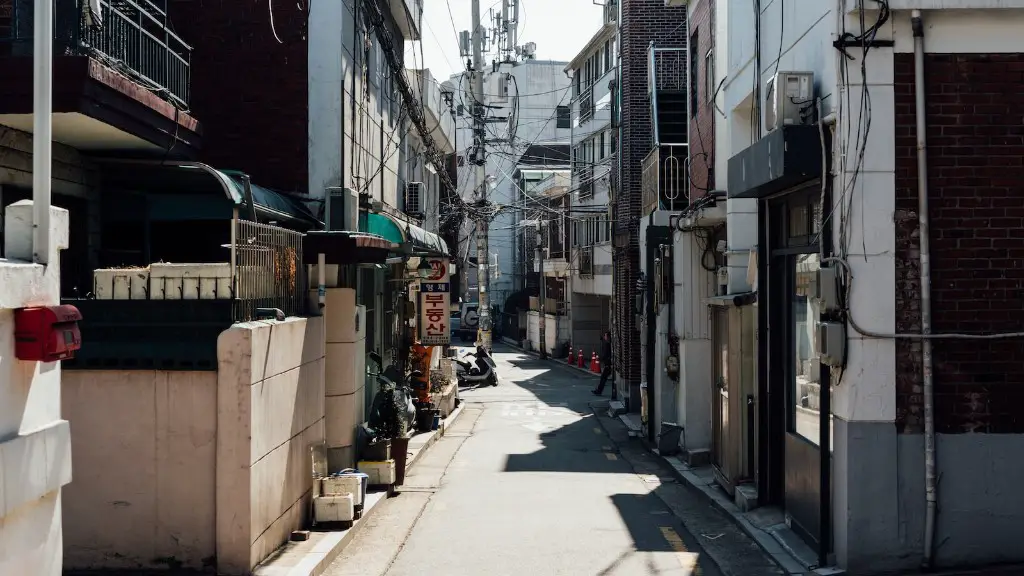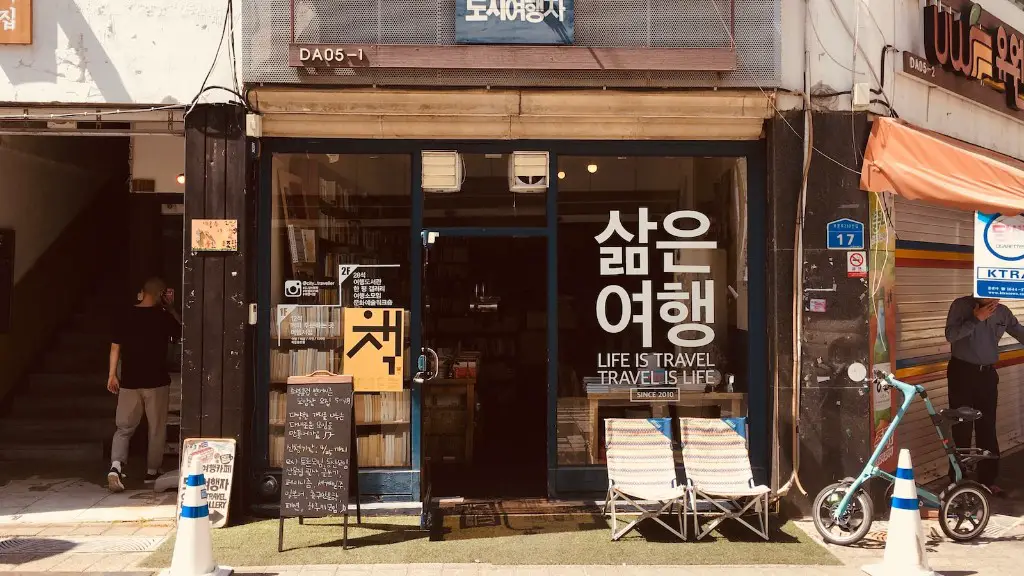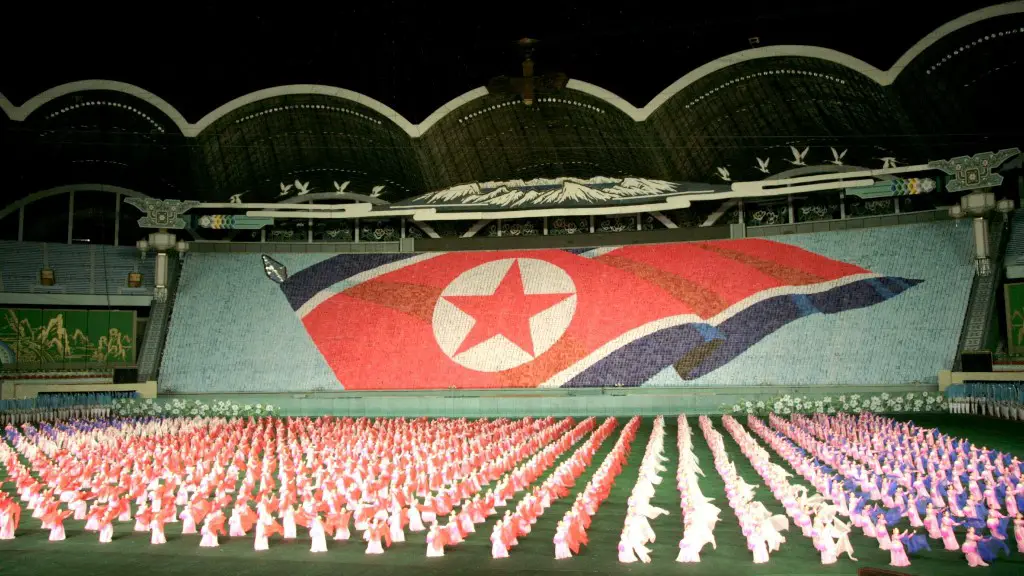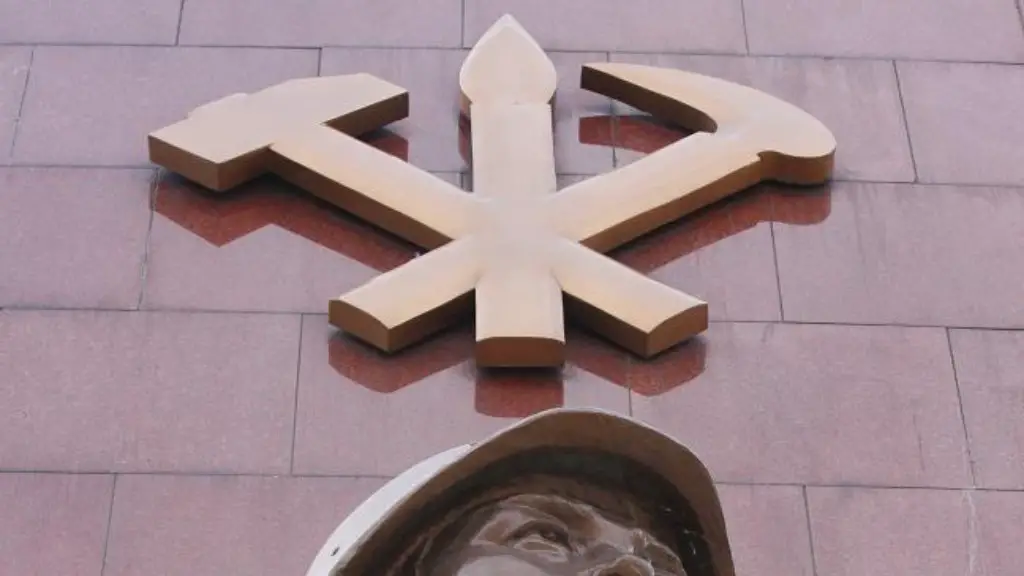It is hard to believe that North Korea, one of the most isolated countries in the world, with a government that constantly silences its citizens, was once a thriving democracy. So, why did North Korea become a dictatorship? This article will explore the many factors that have caused the transformation from a democracy to an authoritarian regime.
North Korea proclaimed its independence from Japan after World War II in 1945. During this time, the economy had grown rapidly and the country had a relatively free press, rights for women and progressive diplomacy with countries like the United States and South Korea. This period of optimism and potential reform in North Korea would soon be replaced by a dictator and the numerous devastating policies implemented by him.
The Rise of Kim II Sung
In 1948, Kim Il Sung took control of North Korea and became its first leader. His ideals of “Juche”, or self-reliance, were very attractive to the North Korean people and Kim Il Sung positioned himself as paternalistic and god-like leader. This attracted the people and enabled him to consolidate power as the main figure in the government.
Kim Il Sung implemented policies like increasing taxes for the private sector, collectivising agriculture, and establishing a planned economy, where the government controlled prices and production. This enabled him to gain more money and resources to expand his own power. He also used state-run media and propaganda to further control the population and build his cult-like personality.
Kim Il Sung also built a network of concentration camps for those that threatened his rule. These camps were filled with political prisoners, and if an individual or their family be deemed an enemy of the state, they were sent to these camps and subjected to horrific punishments, such as torture and psychological abuse.
The Strength of North Korea’s Regime
The strength of Kim Il Sung’s government was further maintained by his son Kim Jong Il who took power after his father’s death in 1994. The ruling Kim family kept tight control of the government, military, and press to ensure that any resistance to their rule was stopped immediately. Kim Jong Il took his father’s policies to even further extremes, increasing North Korea’s dependence on nuclear weapons, expelling foreign reporters, and introducing an even more severe censorship system.
Juche, which maintained the idea that the North Korean people were superior to outsiders, was used by Kim Il Sung and his son Kim Jong Il to perpetuate their own power and position as leaders of North Korea. This idea kept North Korea relatively isolated from the rest of the world, and helped the government to exercise control and oppression over their citizens.
Effects of North Korea’s Policies
The North Korean government has continued to oppress its citizens and resist reform. This has led to economic decline and severe food shortages, with many North Koreans starving or facing malnutrition. Citizens also face severe violations of civil liberties, with no freedom of speech, assembly or press. Women’s rights are also severely limited, with gender inequality rampant in many parts of the country.
Many experts have also argued that the nuclear weapons program of the North Korean government has greatly contributed to the decline of the country’s economy. The money used to fund the program could have been used to make improvements to infrastructure, health care, and living conditions for their citizens.
International Response
The international community has condemned North Korea’s oppressive policies and has been working towards creating change. The United Nations has passed several resolutions on North Korean human rights, including calls for an end to the government’s concentration camps and improved access to information. The United States and other countries have imposed economic sanctions on North Korea, but critics argue that these sanctions have only harmed the North Korean people without leading to real change.
North Korea’s government has been resistant to international pressure, and the country remains an authoritarian state. The government is still led by the Kim family and the people still lack access to information and free expression. However, the international community is committed to helping the North Korean people and pushing for reform, and progress has been made in recent years.
The Influence of International Players
Despite the numerous attempts by international players to bring change to North Korea, it is difficult to assess the effect that foreign actors have had on the dictatorial rule of the government. It can be argued that had other states taken a firmer stance on the human rights violations committed by the North Korean government, then the country might not have become a dictatorship.
China, a major ally of North Korea, has largely remained supportive of the North Korean government and has only recently taken steps to pressure the state to improve its human rights record. South Korea, however, has made more substantial moves towards improving the lives of North Korean citizens. South Korea has invested heavily in North Korea, with both economic and humanitarian aid, and has continually pushed for reform.
Foreign actors have been relatively successful in persuading North Korea to accept certain reforms, such as the 2017-2018 United Nations Human Rights Treaty. However, there is still a lot of ground to cover before North Korea can be considered a fully-fledged democracy, and it remains to be seen whether these international efforts can bring about the change that is so desperately needed.
The Role of Activism and Civil Society
Despite the numerous obstacles that exist in North Korea, a number of civil society organisations have been established to help push for change. These organisations include non-governmental organisations (NGOs) such as Impact, and international bodies like the United Nations Office for Human Rights in North Korea (UNOHR). These organisations are dedicated to improving human rights in North Korea and empowering North Koreans to take a more active role in demanding change.
Activists such as Laura Ling, who was arrested and sentenced to 12 years in prison in 2009, are becoming more outspoken in advocating for North Korean citizens. Ling has continued her activism since her arrest and was recently awarded the National Endowment for Democracy’s Democracy Award for her courage and commitment to defending human rights.
The role of civil society and advocacy groups has been crucial in pushing for much-needed reforms in North Korea, but there is still a long way to go. International institutions and activists need to continue to work together to bring about meaningful change in North Korea, and to help the citizens of the country enjoy the full rights of a democracy.
Conclusion
North Korea’s transformation into a dictatorship has been a long and complex process, with many different factors contributing to the rise of the Kim family’s authoritarian rule. From economic policies and isolationism, to international intervention and civil society activism, there have been a number of different forces at play in North Korea’s journey from democracy to dictatorship.
Ultimately, it is up to North Koreans and the international community to work together to create real change in North Korea, and to ensure that the North Korean people are able to enjoy the full rights of a democracy.




